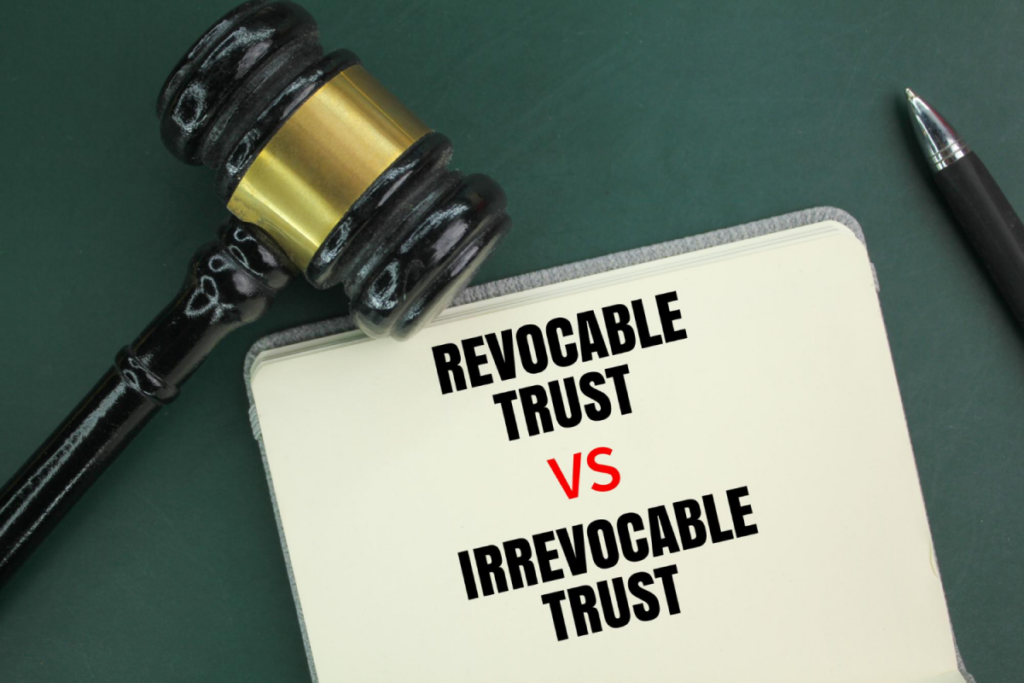The Basics of Trust Creation
What is a Trust?

Types of Trusts
Living Trusts
Testamentary Trusts
Key Parties Involved

Revocable Trusts

How A Revocable Trust Works
Benefits Of A Revocable Trust

Disadvantages Of A Revocable Trust
Irrevocable Trusts

How Do Irrevocable Trusts Work?
Benefits Of Irrevocable Trusts

Disadvantages Of Irrevocable Trusts
Choosing Between Irrevocable & Revocable Trusts!
Frequently Asked Questions
What are the main downsides of an irrevocable trust?
The biggest downside of an irrevocable trust is that once it’s set up and assets are moved into it, you can’t change the trust or manage it yourself. This lack of flexibility can be an issue if your needs or goals change over time.
Which assets should not be included in an irrevocable trust?
Certain assets usually shouldn’t be put into an irrevocable trust. These include retirement accounts like IRAs and 401(k)s, health savings accounts (HSAs), medical savings accounts (MSAs), life insurance policies, certain bank accounts, vehicles, and Social Security benefits.
What do both revocable and irrevocable trusts help avoid?
Both revocable and irrevocable trusts help avoid the probate process, where the court handles the distribution of your assets after you pass away. Probate can be costly, time-consuming, and public. Both types of trusts require a trustee to manage the assets in the trust, such as real estate, investments, and cash.
What is the main benefit of an irrevocable trust?
The main benefit of an irrevocable trust is that it protects your assets. It shields you, your beneficiaries, and your estate from potential legal issues in the future. It also helps reduce estate taxes making sure of the financial security of your estate.

